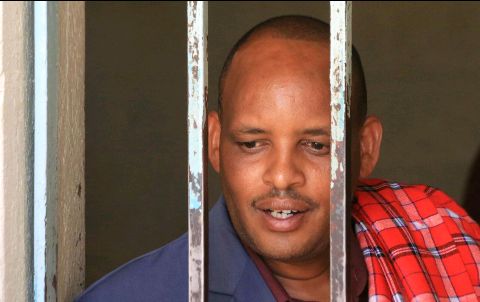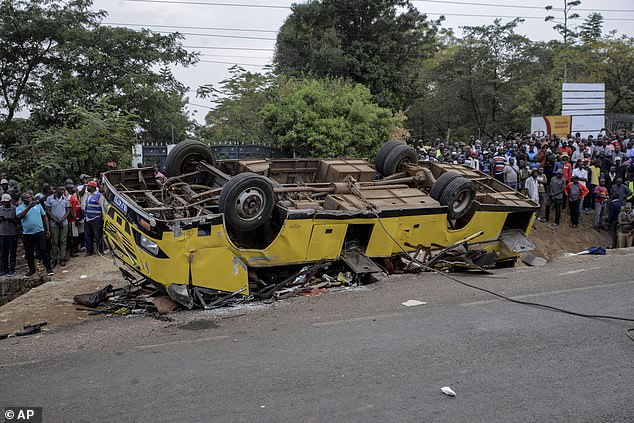Former Laikipia North MP Mathew Lempurkel Passes Away at Kenyatta National Hospital
The Kenyan political scene and the Maa community mourn the loss of Mathew Lekidime Lempurkel, former Member of Parliament for Laikipia North, who passed away at Kenyatta National Hospital in Nairobi. His death, weeks after a severe road accident landed him in the Intensive Care Unit, marks the end of a vibrant life dedicated to advocacy, marked by both achievements and challenges. Let’s explore Lempurkel’s journey, from his roots in Laikipia to his lasting influence, while reflecting on the events that led to his tragic passing.
Early Life and Background
Mathew Lekidime Lempurkel was born in the mid-1960s in Laikipia County, Kenya, within the Maasai community, part of the broader Maa-speaking groups including the Samburu. Raised in a pastoralist family, he faced the realities of nomadic life: land disputes, scarce water, and tensions with wildlife conservancies. These shaped his lifelong commitment to defending Maa rights.
Details of his early education are scarce, but Lempurkel pursued studies that prepared him for leadership. Before politics, he worked on local development projects, focusing on education and health in rural areas. His deep connection to Laikipia’s challenges—banditry, inter-community clashes, and land grabs—drove him to advocate for change. By the early 2000s, he was a respected voice in community forums, challenging large ranches and pushing for fair resource access. His bold style won support from both young people and elders.
Entry into Politics and Parliamentary Career
Lempurkel entered national politics in 2013, winning the Laikipia North seat under the Orange Democratic Movement (ODM) as part of the Coalition for Reforms and Democracy (CORD). This victory was significant for Laikipia North, a pastoralist-dominated area, as he campaigned on land reforms, better security, and economic growth for his people.
In parliament, Lempurkel stood out as a first-time MP. He spoke up on issues affecting northern Kenya, like Tanzania’s ban on foreign cattle imports, which hurt local herders. He pushed for better roads, schools, and health facilities in his constituency. His focus on the marginalization of Maa communities led him to demand more government jobs and resources for his region.
He was a strong voice for community-led wildlife conservation, arguing that Laikipia’s residents should benefit from tourism revenue generated by nearby conservancies. He backed devolution policies to ensure counties like Laikipia got fair funding. As a member of parliamentary committees on lands and environment, he fought against evictions from ancestral lands.
His approach could be fiery. In 2017, he clashed physically with nominated MP Sara Korere during a parliamentary session. The incident, widely covered, drew criticism, though Lempurkel called it a spur-of-the-moment dispute over political differences. Despite his efforts, he lost his re-election bid in 2017 but stayed active, commenting on national issues and supporting ODM.
Controversies and Legal Challenges
Lempurkel’s career was not without turbulence, reflecting the rough edges of Kenyan politics in pastoralist regions. In 2018, he faced arrest over alleged ties to land invasions in Laikipia, linked to violent clashes. The charges were dropped for lack of evidence, but the episode cast him as a controversial figure to some, while others saw him as a defender of community rights.
In 2021, he was sentenced to 12 months in prison for assault from an earlier incident. He secured bail of Sh100,000 while appealing, insisting he was targeted for his outspokenness. That same year, he was arrested again for allegedly inciting violence during herder-rancher clashes in Laikipia. Supporters argued he was unfairly singled out for championing pastoralist causes, while critics pointed to his role in escalating tensions.
In May 2024, Lempurkel survived an attack by thugs in Rongai, Kajiado County, amid rising insecurity. He escaped with injuries, a stark reminder of the risks public figures face in Kenya. These incidents, often tied to his defense of Maa land rights, painted a complex picture: a leader willing to confront power, yet entangled in legal and social battles.
Advocacy for the Maa Community and Broader Impact
Beyond the political arena, Lempurkel was a tireless advocate for the Maa people. He spoke against discrimination and pushed for cultural pride, urging youth to blend tradition with modern education. He joined peace efforts in the North Rift, where communities like Samburu, Pokot, and Turkana often clash. He saw sports as a way to unite rivals, attending events that fostered harmony.
On environmental issues, Lempurkel challenged policies favoring wildlife over people. In Laikipia, where elephants often destroy crops, he called for conservation that benefits locals through shared tourism profits. His work inspired younger leaders from marginalized areas, showing that grassroots voices could reach national stages. Even after leaving parliament, he advised on community issues and spoke at public forums.
His legacy lies in amplifying northern Kenya’s struggles. He brought attention to land rights, education gaps, and economic exclusion, leaving a blueprint for future advocates. His unapologetic style, while divisive, cemented his role as a champion for the underrepresented.
The Tragic Accident and Final Days
Lempurkel’s life was cut short following a devastating road accident weeks before his death. While details remain limited, reports suggest the crash involved a severe collision or rollover, leaving him critically injured. He was rushed to Kenyatta National Hospital, where he fought for his life in the ICU.
Leaders from Samburu County, including Governor Lati Lelelit, visited him during his hospitalization. Early updates suggested he was stabilizing, with doctors commending his resilience. Tragically, complications set in, and Lempurkel passed away on August 24, 2025, at age 58.
The accident highlights Kenya’s ongoing road safety challenges. Poor infrastructure and high traffic in areas like Laikipia contribute to frequent fatalities. Lempurkel’s death has sparked renewed calls for better roads and safety measures in northern counties, echoing his own advocacy for improved infrastructure.
Tributes and Public Reactions
The news of Lempurkel’s passing sent ripples across Kenya. ODM leaders praised his dedication, with one statement noting his “unwavering fight for justice.” Governor Lelelit called him a “pillar of the Maa community,” emphasizing his role in giving voice to the voiceless. In Laikipia and Samburu, residents shared personal stories of his support, from funding school fees to securing health projects.
Social media platforms, particularly X, overflowed with tributes. Users posted photos of Lempurkel in traditional attire, addressing rallies or meeting constituents. One user wrote, “He spoke for us when no one else would.” Another shared a video of his fiery parliamentary speeches, captioned, “Rest in power, warrior.”
Analysts reflected on his impact, noting the gap his death leaves in pastoralist advocacy. Plans for his funeral are underway, expected to draw thousands from the Maa community and beyond. Elders have called for a ceremony honoring his cultural roots, likely blending Maasai traditions with modern tributes.
Reflections on a Complex Legacy
Mathew Lempurkel’s life was a blend of courage, controversy, and commitment. From his pastoralist roots to the national stage, he carried the weight of his community’s struggles. His advocacy put Laikipia North on the map, forcing Kenya to confront issues of land, equity, and inclusion. Yet, his legal battles and bold tactics reminded us that change often comes with friction.
His death prompts bigger questions: How can Kenya better support leaders from marginalized regions? How can roads become safer for all? Lempurkel’s story is a call to action—to build on his work for justice and unity. As the Maa community and the nation grieve, his voice lingers, urging us to fight for those left behind.





